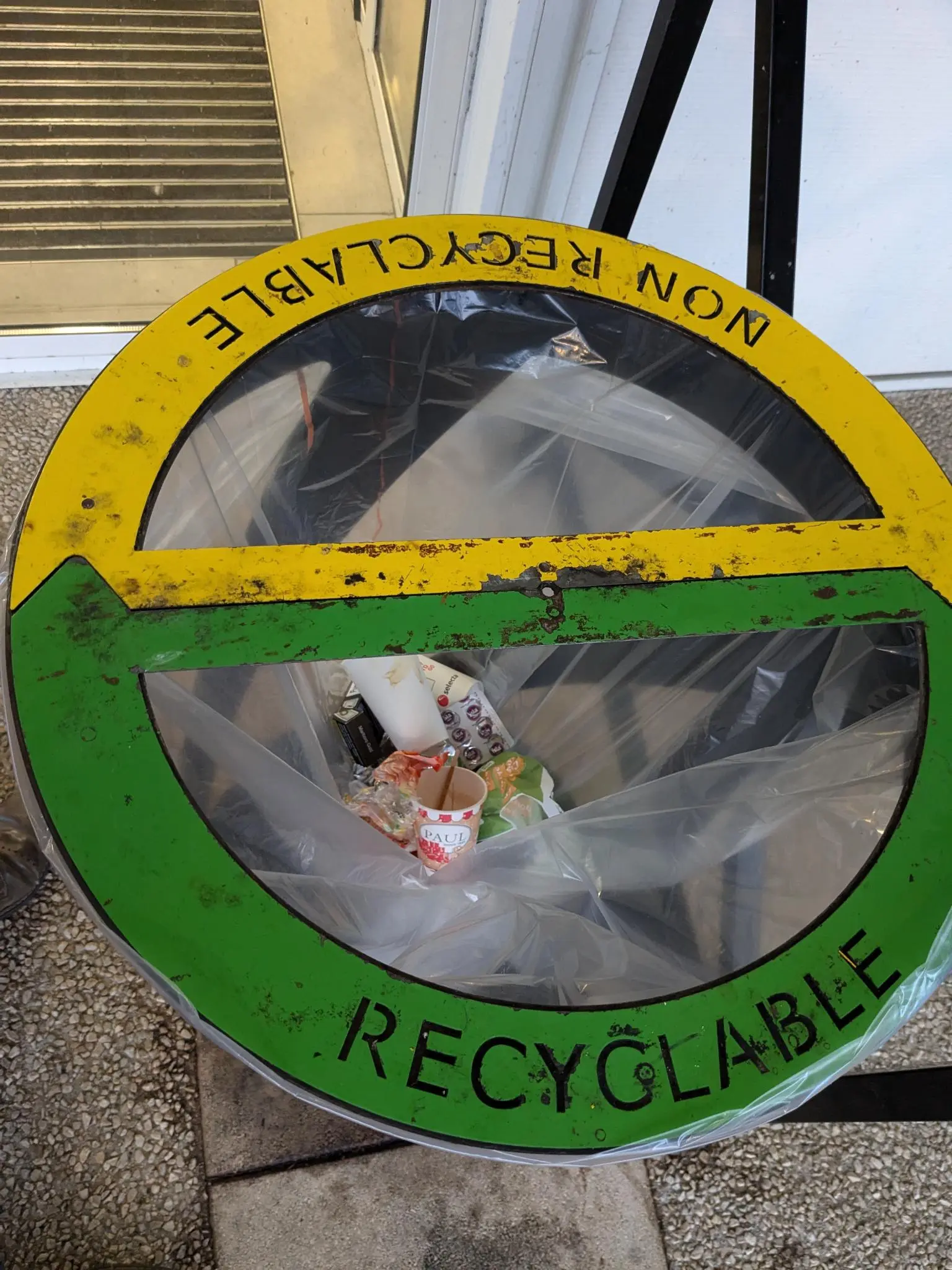Mir fehlen in dem Artikel so bisschen belastbare zahlen bzw. messbare Effekte. Dass die deutschen Autobauer wahrscheinlich zunehmend Probleme bekommen ist das eine, daraus aber das Ende der Pkw insgesamt abzuleiten, finde ich irgendwie zu weit gegriffen. Ich finde weniger Individualverkehr gut, sehe aber aktuell keinen so starken Trend in diese Richtung, dass man von "Abspann" sprechen könnte.
rbn
Are credit card fees really 4-7% in the US? In the EU also Visa and MasterCard are really popular but fees are capped at 0.3%.
https://eur-lex.europa.eu/EN/legal-content/summary/fees-for-card-based-payments.html
This looks cold and (with that plastic cloth) sweaty at the same time.
I'll for sure dig a bit deeper on the links, but for me it's still very counter intuitive to estimate information density of spoken word just by the count of syllables.
E.g. I can vary the sentence 'I need help' in so many ways. I can mumble it to a close sitting person to imply secrecy, I can say it in a desperate voice to show psychological distress, I can increase the volume to indicate urgency etc. And all that doesn't even consider body language, mimics etc. which are all part of the information flow. And I'd guess that body language varies a lot from country to country.
Ich fände die verschiedenen Funktionen des Ring-Ökosystems eigentlich gar nicht so schlecht muss ich sagen. Ist aber aus meiner Sicht, insbesondere in Innenräumen, datenschutztechnisch nochmal kritischer als die Alexa-Spracherkennung. Wenn solche Funktionen mal offline / self-hosted zur Verfügung stehen, wäre ich durchaus interessiert.
Thanks a lot for these insights, much appreciated!
asking a question isn't actually a separate ("?") character. In speech, asking a question is just a modification of tone
But if modification of tone encodes additional information wouldn't we need to consider that as additional bits?
So if 'You need a taxi.' and 'You need a taxi?' are two different things, I don't think we can just skip punctuation when measuring the bits of information in a sentence.
They found that Japanese, which has only 643 syllables, had an information density of about 5 bits per syllable, whereas English, with its 6949 syllables, had a density of just over 7 bits per syllable. Vietnamese, with its complex system of six tones (each of which can further differentiate a syllable), topped the charts at 8 bits per syllable.
That's the part I don't get. How do you determine the bits of information per syllable/word in different languages?
If I pick a random word such as 'sandwich' and encode it in ASCII it takes 8 bytes / i.e. 64 bits. According to the scientists, a two-syllable word in English only holds 14 bits of actual information. Anyone understands what they did there or has access to the underlying study?
Aren't they paying for storage and traffic independent of the availability of the service? So if 100,000 people uploaded 15 GB of encrypted backups to a free Gdrive, they pay for ~1.5 Petabyte of storage and traffic. I mean it's probably not significant for Google but it should cause at least a little costs without bringing any value (as long as you upload encrypted or bullshit data).
The main downside I see would be the negative impact on the environment. My example above would lead to plenty of additional hard drives and electricity that's just wasted for nothing.
Or do the contrary and download all kind of stuff from websites that are target of the strike. So like a DDoS attack but without a centrally controlled botnet. Just thousands of regular people manually downloading the WhatsApp client for iOS, Windows and Android at the same time, people uploading their encrypted backups to Amazon Drive etc.
Ich wohne nicht in Berlin und bin auch sehr selten dort, also hab ich persönlich sowieso nichts zu melden. Grundsätzlich fände ich es auch total toll, wenn so ein Experiment glückt und wir in Deutschland so eine eine Vorzeigestadt hätten mit einer komplett autofreien Kernstadt. Wenn es gelingen sollte, fände ich das super.
Ich wollte nur zum Ausdruck bringen, dass ich es als ziemlich unwahrscheinlich erachte, dass man das wirklich durchsetzen kann angesichts der sicher trotzdem sehr zahlreichen Gegner. Und über das Scheitern des Projekts hinaus sehe ich dann eben die Gefahr, dass dies weiter zur Spaltung und gänzlichen Ablehnung von Entwicklungen in diese Richtung führen könnte.
Für Mitte sind es zum Beispiel 180 Autos pro 1000 Einwohner.
Was bei circa 400.000 Einwohnern allein in Mitte immer noch 72.000 Autos und (ausgehend davon, dass die nicht alle Single-Haushalten gehören werden) immer noch deutlich über 100.000 betroffene Anwohner wären. Und der S-Bahn-Ring ist ja nochmal deutlich größer.
Und Berlin Mitte, als Zentrum der deutschen Hauptstadt, wird ja auch bei weitem nicht nur von den direkt dort Wohnenden genutzt. Zu 100.000+ potentiellen Gegnern werden also noch sehr viele weitere Stakeholder dazu kommen, die gegen so eine Umstellung kämpfen werden und sie (wahrscheinlich erfolgreich) verhindern können.
Mein Bauchgefühl war einfach, dass es einfacher wäre klein anzufangen und z.B. erstmal Wohngebiete autofrei zu machen oder ähnlich zu Barcelona autofreie Wohnblöcke zu bilden. Und wenn die Skeptiker dann die Vorzüge selbst erleben, das Konzept nach und nach auszuweiten.
Da das in Barcelona und Paris gut zu funktionieren scheint, wäre ich (naiv?) davon ausgegangen, dass man das auch auf Berlin übertragen könnte. Du scheinst aber wesentlich mehr rechtlichen Background zu haben als ich zu dem Thema.
Als selbst nicht queere Person habe ich das Konzept der CSD- und generell der meisten Pride-Veranstaltungen immer so aufgefasst, dass alle willkommen sind, die sich dort wohlfühlen und eine gute Zeit haben. Eine (moralische) Verpflichtung zu erscheinen o.ä. habe ich dort nie verspürt. Würde da nicht zu anderen öffentlichen Veranstaltungen unterscheiden. Wenn du Lust hast hinzugehen, klar. Wenn du mehr Lust hast, dich im Bett zu verkriechen oder was anderes zu machen, go for it. :)


Danke! Aber dann ist die Metapher "Abspann" aus meiner Sicht ein Griff ins Klo.
Wenn wir mal zugunsten des Autors von einem Film mit nur 90 Minuten inklusive 5 Minuten Abspann ausgehen, dann sind das circa 5% der Gesamtspielzeit.
Wenn wir - um ähnliche Zahlen zu haben - sagen, dass Autos jetzt seit 85 Jahren ein relevantes Transportmittel sind, wäre in 5 Jahren Ende für PKW.